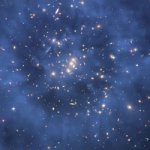Boo Radley said:
No, a hypothesis starts out untested. This is the process. Your point, the one not ignored, isn't really clear. Science begins with a question, followed by a hypothesis, testing and theory, followed by more questioning. It is the process.
It is, or ought to be, totally clear. If an hypothesis is just a group of related propositions, and those statements are untested, just what separates a scientific hypothesis from a non-scientific one?
You said, in response to my entire post #83 (apparently), that it's (what? I'm not sure what "it" refers to) not a matter of being right all the time, but it is instead the questioning, the testing, the revising.
I replied that artists and philosophers question, test, and revise all the time. But surely you aren't saying that artists and philosophers are scientists, are you? That seems overly broad.
Just to increase the clarity and make sure everyone's on the same page, here: my thesis is that it's not clear what science is. It's not clear what separates science from other disciplines. The borders are fuzzy, if not entirely nonexistant in spots. You seem to disagree with that assessment. So when you say that science is about testing, revising, and questioning, you had better say specifically what's different about the way a scientist tests, revises, and questions if you want to have a point.
Boo Radley said:
Actually it does, as I include mathematitions.
You include mathematicians in what? In the category of accountants? I can think of a few dozen mathematicians off the top of my head that would probably take issue with that.
Boo Radley said:
I think you just don't like the answer. Each field defines what is and isn't in the field. I stated that clearly ans well, and mention who doesn't decide for them.
No, I don't like it because I think it's wrong. People working in a field neither completely define what that scope of that field is, nor should they be allowed to. That was the purpose of the accountant example. If accountants were allowed to just decide the scope of their work, with no other force to contradict or shape their decision, then clearly accountants would be free to proclaim that everything is accounting. This would leave accountants in a position to dictate to artists, writers, scientists, politicians, businesspeople, actors, philosophers, historians, and even athletes the principles of those disciplines. Clearly, the decision as to the scope of a particular area of endeavor should not be left up to those working in the field.
Nor is it, as a matter of practical necessity. To use accountants, again, it turns out that politicians have a heck of a lot to say about what accountants do and do not do. So do business managers. So do mathematicians, and to a lesser extent, economists. This is not to say that accountants don't have some say in determining the scope of accounting. But it is to say that they are far from the only one who determine that scope. A similar rule applies to the sciences.
Boo Radley said:
Something being a favorite is equal to you having it down. You were factually incorrect.
If that were all I had said, you'd have a good point. But that isn't all I said, now is it? In the section you quoted, I said:
I'm fairly well-educated in the literature on the subject.
Tracing back just a little, you introduced the phrase "factually incorrect" by saying:
The point is, you're factually incorrect.
Emphasis added.
This occurred at the end of your post 85, and the bolded part led me to believe that the entirety of post 85 was meant to show me factually incorrect. I rebutted post 85, short as it was, point by point, and then said I was not factually incorrect because, first, being motivated to read up on the topic (it being one of my favorite topics to read up on and ponder), I have in fact read up on the topic, and am fairly familiar with the issues at hand. Second, for the reasons stated in my rebuttal, I am not factually incorrect contra your rebutted claim. You are, of course, free to rebutt further...

